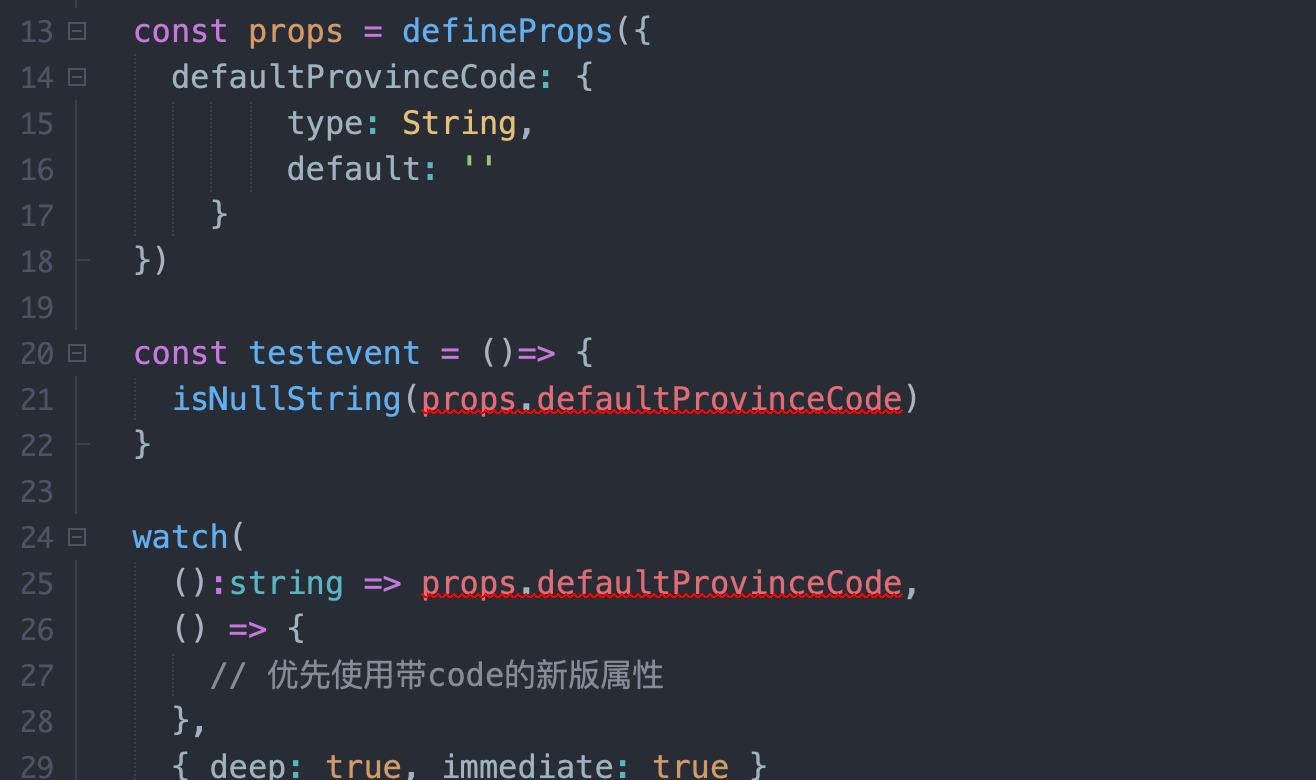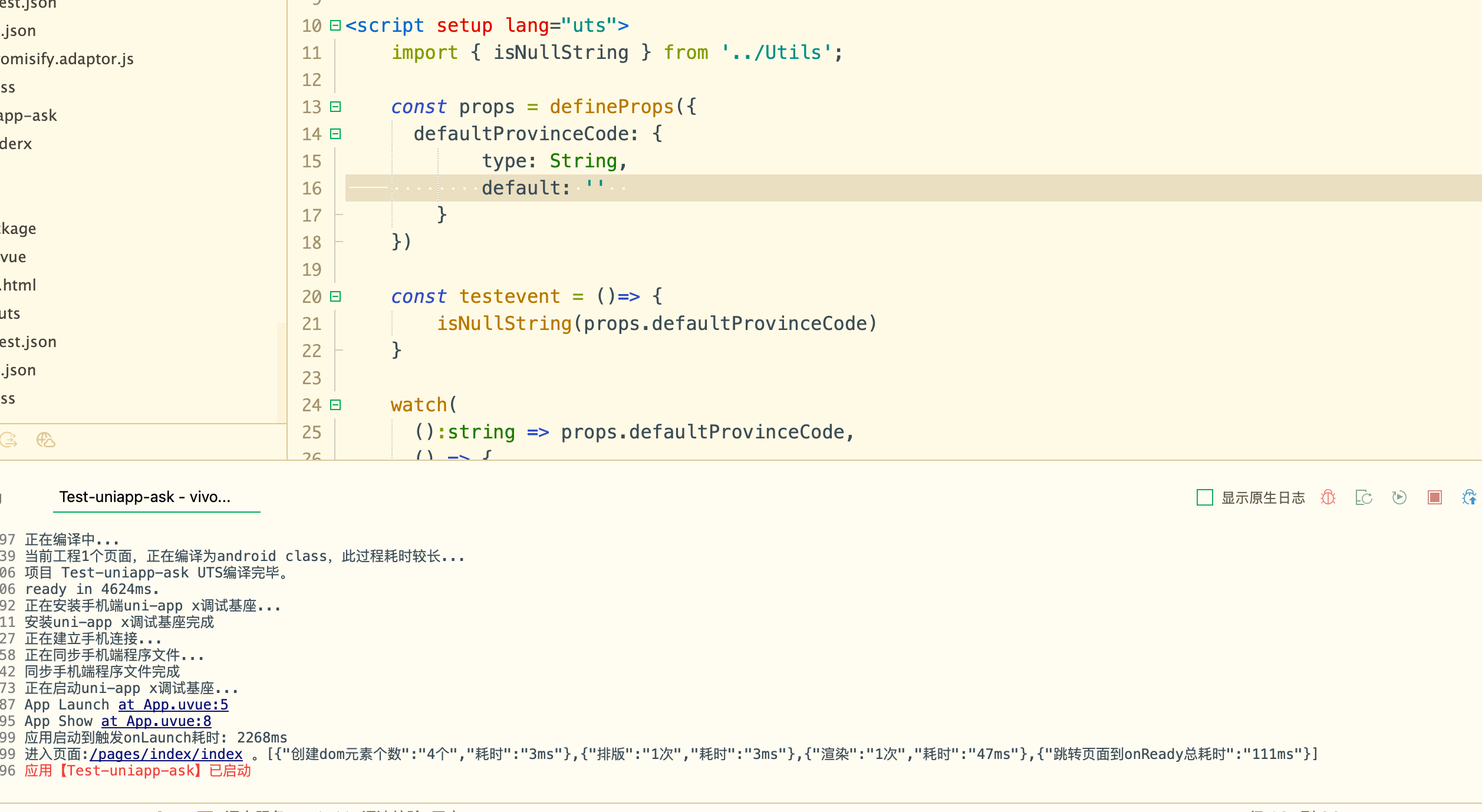定义了一个prop字段是defaultProvinceCode,然后使用我定义的一个工具函数判空的时候,报类型不匹配
const props = defineProps({
defaultProvinceCode: {
type: String,
default: ''
}
})export function isNullString(value: string | null): boolean {
if (value == null) {
return true
}
if (value!.length <= 0) {
return true
}
return false
}isNullString(props.defaultProvinceCode)问题1: HBuilder报错:[APP-ANDROID] 类型“Record<string, any>”的参数不能赋给类型“string”的参数。
watch(
():string => props.defaultProvinceCode,
() => {
// 优先使用带code的新版属性
},
{ deep: true, immediate: true }
);问题2: 使用watch时报错:
[APP-ANDROID] 类型“Record<string, any>”的参数不能赋给类型“string”的参数。





